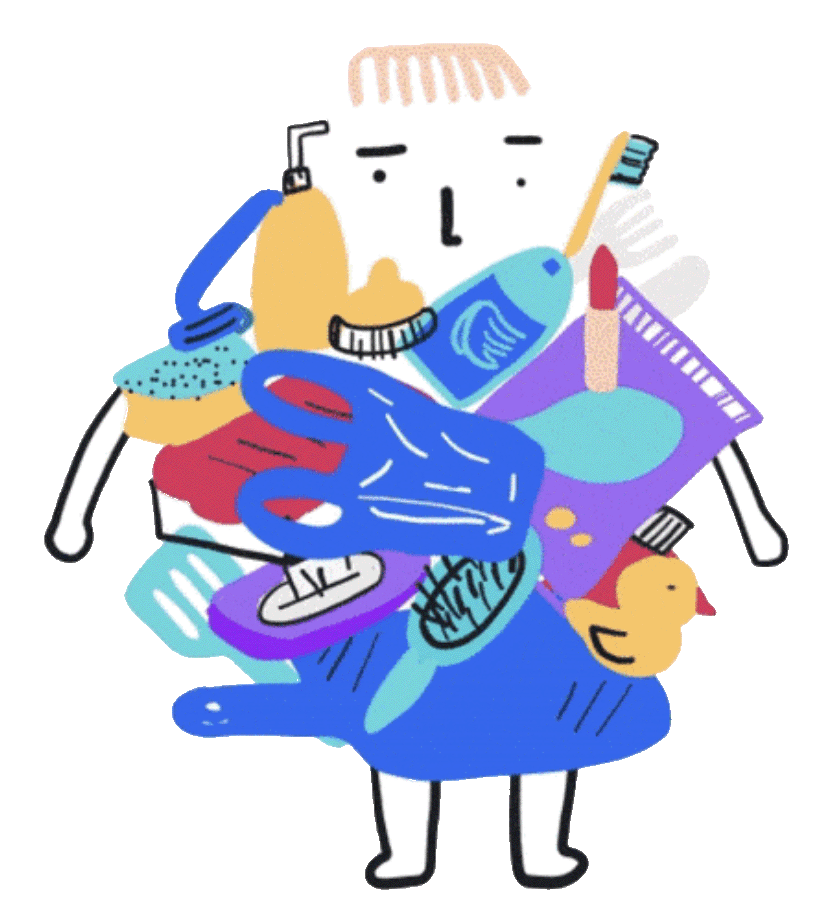Plastic is everywhere. And we mean: literally everywhere. Perhaps, when thinking of plastic you think of packaging in the supermarket or the plastic soup in rivers and oceans. But did you know that there are also many very small plastic particles, invisible to the naked eye? We call them microplastics. They come in all sorts of sizes, colours and shapes, including fiber-shaped. They end up in the environment and in our bodies, and they can make us sick. But what exactly are these particles, where do they come from, why are they dangerous and what can be done about them?
These are microfibres
Microplastic fibers are very small thread-like particles of plastic. They largely come from clothes or other textile products, such as carpets, that are made of synthetic fabrics. You have probably heard of polyester. It is a plastic fabric, made from oil. Like acrylic, elastane, spandex, nylon and lycra. Manufacturers make up fancy names for these fabrics to avoid using the word ‘plastic’ on the label. In the past 20 years, the use of these synthetic materials in fashion has doubled.
What is microplastic fiber shedding?
Microplastic fibers end up in the environment because they detach from clothes and other textiles. This is mainly due to friction. And unfortunately, it happens throughout a garment’s life cycle. From the moment the fabric is made and the garment is manufactured, to wearing and washing it. Millions of microplastic fibers end up in the water and the air as a result. These plastic particles are found everywhere, from the deepest parts in the oceans to the highest mountain peaks.
Why are microplastic fibers dangerous?
After washing synthetic clothes, wastewater containing millions of microplastic fibers ends up in the sewer. Sewage treatment plants do their best to remove as much as possible, but because the particles are so small, many still end up in the sea. Aquatic organisms eat the fibers and pass it on to larger animals higher up in the food chain. This is not only bad for the animals; you might end up with plastic in your body after consuming a pan of mussels or a fish fillet.
Moreover, microplastic fibers also end up in the air during the production and wearing of clothes made of synthetic materials. We subsequently inhale these plastic particles! Scientists are very concerned about their effect on our lungs and even more so about the effect on the developing lungs of young children. In short: microplastic fibers are everywhere, almost impossible to remove or avoid, and they pose a serious risk to human and environmental health.
What can we do about this problem?
The problem of microplastics entering the environment is not an easy one to solve. All parties involved have a responsibility. With our campaign, we put pressure on clothing and washing machine manufacturers, and support the development of products that stop fiber shedding. Furthermore, we call on national and international governments to implement laws that will reduce the volume of synthetic textiles being produced and placed on the market. And we also call on you as consumers to take steps. Poor-quality clothes shed more fibers, but are typically thrown away quickly. After a few washes, they end up in the trash, and subsequently in for example one of the devastating landfills in Chile. So, before you buy anything, think carefully about what you are buying. Check clothing labels for plastic fabrics, avoid them and opt for quality. That way, you can help keep our environment healthy.

